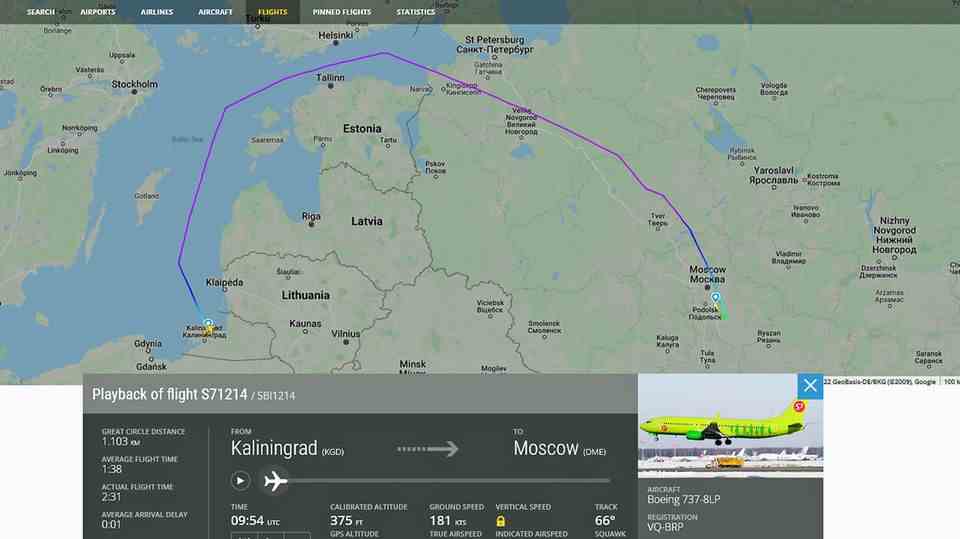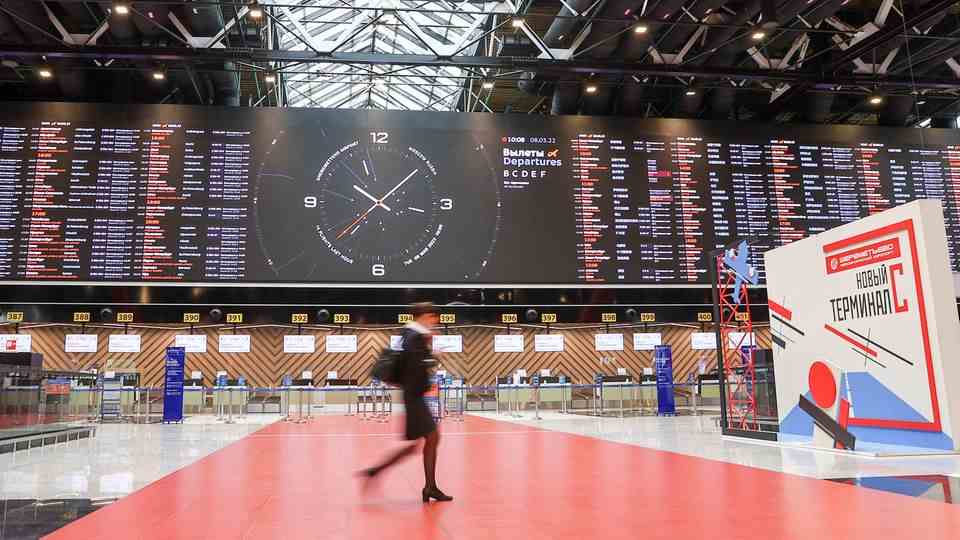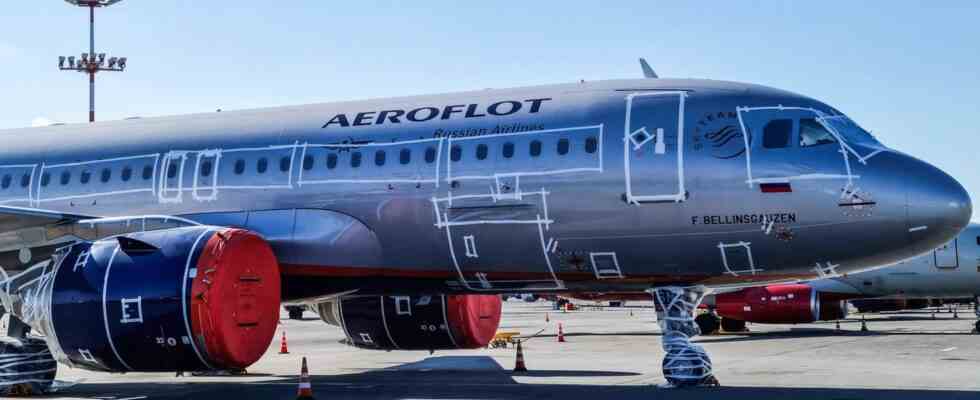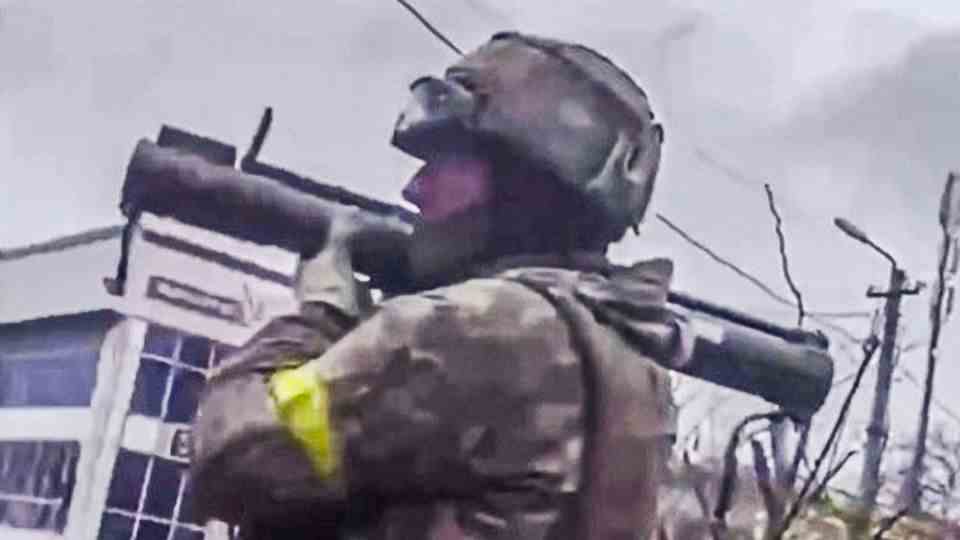blog
follow me
Ukraine War: How Hard Western Sanctions Are Hitting Russian Aviation
No longer allowed to fly abroad: An Aeroflot Airbus A320 parked at Moscow’s Sheremetyevo Airport.
© Imago Images
Russian aircraft are almost exclusively domestic. Russian airlines are banned from flying in the EU and North America. Not only the supply of spare parts becomes a problem for the jets from Aeroflot and Co. No re-registration will help.
Overflights over large parts of the Western world are prohibited for Russian scheduled, charter, cargo and private jets. The United States was the last country to join the so-called no-fly zones, or NFZ for short, on March 3rd. Previously, several Aeroflot machines were able to leave the USA for Moscow by flying directly onto the Atlantic, avoiding Canadian airspace, which was already closed to them.

Flights from Moscow to Kaliningrad have to take a detour via the Baltic Sea
© Screenshot flightradar24.com
Already on the last long-haul flights in early March to Bangkok, Dubai, Istanbul or the Maldives, Aeroflot only used jets that are either owned by Aeroflot or belong to the Russian state leasing company GTLK. The only international destination in Europe is the Belarusian capital Minsk. The flights between the Russian enclave of Kaliningrad and Moscow have been extended by almost an hour due to the ban on overflights in the Baltic States, with a detour via the Baltic Sea and the Gulf of Finland.
Due to the international sanctions for Western technology, the Western leasing companies, which have canceled contracts for a good 500 jets used by Russian airlines by March 28 and have flown the jets out.
Antonov An-225: Only example of the world’s largest cargo plane destroyed
17 images
Not all planes operated by Russian airlines such as Aeroflot, Rossiya, S7, Air Bridge Cargo or the low-cost airline Pobeda made it back to Russia to avoid possible confiscation. On Tuesday, Russian Transport Minister Vitaly Savelyev admitted that 78 planes abroad have already been chained down.
Conversely, hundreds of jets are now idle at Russian airports. Only a sub-fleet is used on domestic routes. As a result of the grounding in Russia, the lessors no longer have access to their property; they have to worry about their planes and expect high depreciation. Experts put the equivalent value of the leased aircraft in Russia at between ten and twelve billion US dollars.
Registration RA instead of VP-B and VQ-B
So far, most of the chartered aircraft were registered in Bermuda, recognizable by the abbreviations VP-B and VQ-B on the registration. Because foreign lessors like AerCap generally don’t want to register their Airbus and Boeing jets in Russia, but rather in their respective home countries if possible – for good reason: “Otherwise the monitoring of airworthiness standards would be transferred to Russian authorities, which the owners from the try to avoid going abroad in order to remain fair to Western standards,” explains lawyer Moritz G. Heile from the Goodvice law firm in Berlin, which specializes in aviation law. “Finally, otherwise there would be the economic risk that the aircraft would be more difficult to rent after the end of the lease period.”
Due to a special agreement under the umbrella of the International Civil Aviation Organization ICAO between the Russian Federation and Bermuda in 1999, airworthiness and thus road safety remained in the West – and not in Russia.

Russia’s largest airport is feeling the effects of the sanctions: a yawning emptiness at Moscow’s Sheremetyevo Airport. Two of the five terminals have since been closed.
© Imago Images
But as part of the sanctions, the Bermuda Civil Aviation Authority (BCAA), the air traffic control authority of the island state in the Atlantic, has revoked the airworthiness of all Russian aircraft registered there. In response, President Putin signed an executive order early last week allowing the issuance of domestic airworthiness certificates and transfer to the Russian registry, allowing continued operations on domestic routes. This approach, contrary to all international conventions, is tantamount to expropriation for the leasing companies.
No bookings, no maintenance, no spare parts
In response to Russia’s war of aggression in Ukraine, Aeroflot’s two largest computer reservation systems, Saber and Amadeus, have also cut off access to international reservation systems.
Since Western aircraft manufacturers no longer supply spare parts or carry out maintenance work, more and more aircraft have to be used as spare parts stores and cannibalized over time. This is shown by the example of Iran, which has been subject to sanctions for years, with its outdated aircraft fleets.
New Russian-made aircraft will not be able to fill the gaps in the foreseeable future. So far, the Sukhoi Superjet 100 has only been produced in small numbers, and the regional jet has not proved to be an export hit. The Russian alternative to the Boeing 737 or the Airbus A320, the Irkut MC-21, is still in flight testing with five prototypes. The tightened trade restrictions are likely to prove even more problematic. Jets “made in Russia” are dependent on Western components for parts of the avionics.
The decline of Russian aviation is not a matter of time, but already in full swing. The international business, Aeroflot’s flights to more than 60 countries, are history. Your 29 foreign stations in Europe will be closed, hundreds of employees will be affected.
Andrei Panow is a manager who has not only drawn the necessary conclusions but also taken a stand. The deputy chief of the state airline Aeroflot has given up his responsibility for strategy, service and marketing and left the country.
On March 12, he wrote on Facebook: “Left Russia. Left Aeroflot. Old life is over.” Since he also has Israeli citizenship, the 47-year-old flew to Tel Aviv, like him “time online” reported. “As an opponent of the war, I can no longer work for a company that is owned by the state. There wasn’t much to think about.”
Also read:
– Sukhoi Superjet 100: The Russians’ nightmare jet
– Deliberate provocation? Aeroflot passenger jets enter restricted airspace
– Airspace closures: How the Ukraine war is disrupting air traffic around the world



